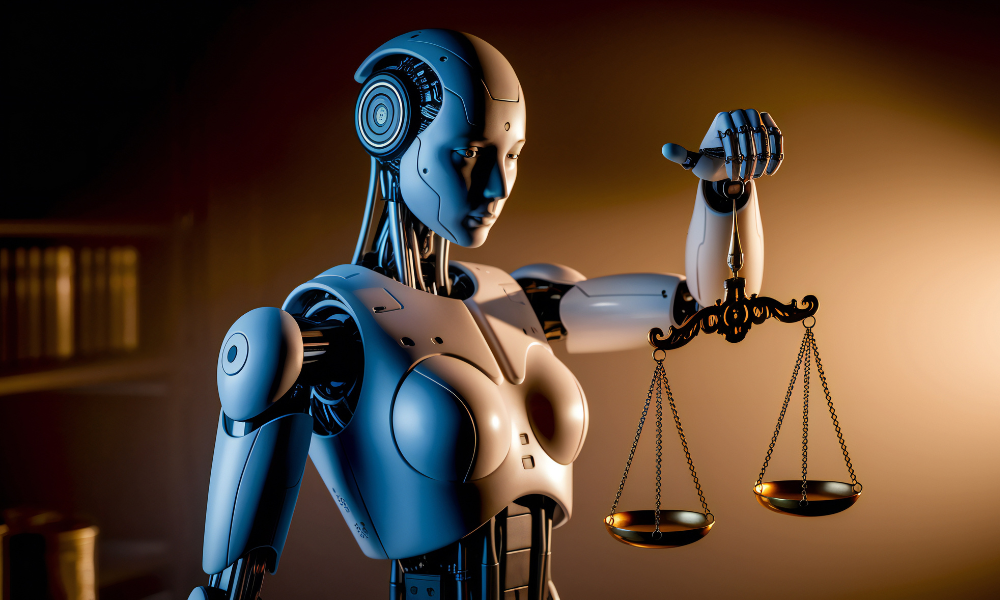
Labour and employment laws must be updated to ensure data protection and ethical considerations

Policymakers must urgently establish a comprehensive and adaptable legal framework to oversee artificial intelligence integration, according to the "Digitalisation (Artificial Intelligence and Robotics) and its Impact on the World of Work – Part II" report published by the International Bar Association's Global Employment Institute.
The report revealed that existing labour laws focusing on collective worker rights and union-employer interactions must be updated, as do employment laws tackling employees' individual rights and obligations within a specific employment contract, to ensure data protection and ethical considerations. Necessary amendments include how environmental policies create new jobs and require new regulations as well as taxation rules that adapt to new working modes like nomad working.
Intellectual property rights and corporate law must also be revised.
"Digitalisation and automation are reshaping the very fabric of the global labour market, transcending sectors and geographies. AI is redefining not just how work is done but also what work means for society at large. To navigate this transformation, workers, companies and lawmakers must adapt swiftly to new challenges such as skill gaps and the legal ambiguities introduced by emerging technologies," said Dr Gerlind Wisskirchen, ex-IBA employment and industrial relations law committee co-chair, in a statement.
Digitalization impacted the white-collar sector more than the blue-collar sector, the study showed. Moreover, while generative AI could boost worker productivity by a maximum of 40 percent, it could worsen wage inequalities. Advanced economies are also positioned to benefit more from adopting AI than low-income economies are, widening the economic disparity.
Nonetheless, the legal and medical professions are likely to benefit from the complementarity of AI instead of how it replaces functions; for instance, AI can increase support to and improve productivity in the judicial system without directly impacting judges' work. According to the Organisation for Economic Co-operation and Development, lawyers have an estimated 7-8 percent chance of being replaced by AI.
Nonetheless, legal roles involving administrative tasks, contract drafting, or note taking could be negatively impacted. Eighty-five percent of lawyer respondents to the IBA's study said that AI would change the profession considerably in the next three years.
Thus, flexible legislation should cover the introduction of robot taxes and enhance social security for self-employed individuals.
"Artificial Intelligence and robotics are not merely tools, they are catalysts for a fundamental transformation of how we work, what we value in work and what it means to be a worker. We are entering an era where machines not only support us, but increasingly make decisions, assess performance and shape career paths," said Dr Inka Knappertsbusch, CMS Hasche Sigle counsel. "In this new world of work, human skills such as creativity, empathy and adaptability are becoming more, not less, relevant. The challenge lies in ensuring that technology augments rather than replaces the human contribution, and that organisations are equipped to manage this shift with foresight and responsibility."
The report recommended that businesses and lawmakers champion and support lifelong learning to ready workers for AI-enhanced roles and bridge skill gaps. It also called for governments and companies to invest significantly in digitalization and supporting infrastructure.
"We stand at a critical juncture where the fusion of AI and robotics with traditional industries can lead to unprecedented economic growth, but only if this progress is accompanied by robust legal frameworks and societal readiness. Workers' rights and corporate responsibilities need to be reimagined for the digital age," said Regina Glaser, GEI co-chair. "AI and robotics are here to stay, whether they are replacing administrative duties or augmenting higher-level legal responsibilities. To be relevant, the legal profession needs to keep up with these advances and maintain its digital training initiatives."
The "Digitalisation (Artificial Intelligence and Robotics) and its Impact on the World of Work – Part II" report follows the release of the "Artificial Intelligence and Robotics and Their Impact on the Workplace" report in 2017.